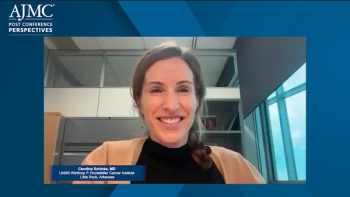
A panelist discusses the latest advancements presented at ASCO 2025, highlighting talquetamab’s pivotal trial in relapsed/refractory multiple myeloma that demonstrated high response rates and longer durability with biweekly dosing, including in patients previously treated with B-cell maturation antigen–targeted therapies, supporting sequencing and combination strategies to improve outcomes.



